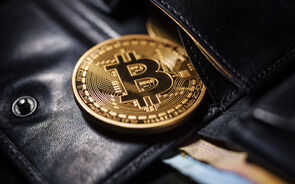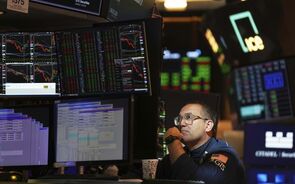USA: It is time for the Fed to start raising interest rates
1 Mensagem
|Página 1 de 1
USA: It is time for the Fed to start raising interest rates
http://www.economist.com/images/2004031 ... suecov.jpg
American interest rates
Playing loose with money
[/i]Mar 11th 2004
From The Economist print edition[/i]
It is time for the Fed to start raising interest rates
MONEY has never been so cheap. The average short-term interest rate in the big economies is at its lowest in recorded history. By slashing interest rates to only 1% after the stockmarket bubble burst, America's Federal Reserve deserves much of the credit for saving the American economy from a deep recession and possible deflation. Many commentators (including The Economist) had fretted that low interest rates might fail to spur the economy, because consumers were already up to their necks in debt. But households have borrowed more to keep spending and America's economy is now growing briskly. So does America still need such low interest rates?
The resounding answer from most American economists is yes. Just look at the jobs figures (see article). Measured by employment rather than output, America has suffered its deepest downturn since the 1930s. Although the number of jobs has been growing since last summer, the pace of new hiring has been unusually slow. Moreover, the core rate of inflation stands at only 1%. Thus, conclude most economists, interest rates can safely stay where they are.
But for how long? By many measures, monetary policy is now looser than at any time since the 1970s when inflation took off (see article). Although consumer-price inflation remains low, the liquidity that the Fed has created by holding interest rates down is spilling over into asset markets. Some readers might believe that we are obsessed with bubbles. Yet even normal folk cannot ignore the vast amounts of froth around at the moment. Over the past 12 months, America's stockmarket has enjoyed its biggest gain in real terms for 50 years, and in the fourth quarter of 2003 house prices rose at their fastest rate for 25 years. Household debt rose last year at its fastest pace for two decades as consumers borrowed against those capital gains. This hardly looks like an economy that requires a massive monetary stimulus, which it will continue to get for as long as interest rates remain at 1%.
Japanese jitters
America's low rate of inflation and its weak labour market mean that policy needs to remain accommodative, but a modest rise in interest rates would still leave monetary policy extremely loose by past standards, and thus continue to stimulate demand and jobs. Jack Guynn, the president of the Atlanta Fed, a regional arm of the Federal Reserve, recently put the case rather nicely: “When a patient is seriously ill, the situation may call for prescribing a strong dose of medication. As the patient begins to recover, however, there is a need to recalibrate the dosage or to stop prescribing it entirely to avoid potential side effects.” We would argue that it is time for America to reduce its cheap-money dosage. A rise in rates could help to avoid another dangerous bubble by warning investors and homebuyers that asset prices cannot rise for ever.
One argument against raising rates is that the Fed risks repeating the mistakes of Japan in the 1990s. The Bank of Japan allowed deflation to develop when it held policy too tight, partly because it was worried about another asset-price bubble. Last year there did seem to be a serious risk of deflation in America. That is why the Fed was right to cut rates then. But conditions today in America are very different to those in Japan in the 1990s. Japanese house prices, and hence household wealth, were falling, and have continued to do so. America's monetary policy is much looser than Japan's ever was. Through most of the 1990s, Japanese interest rates remained higher than its nominal GDP growth—ie, policy was restricting, not stimulating, the economy. And third, America's banks have long been in much healthier shape than Japan's.
In its desire to learn from Japan's mistakes, the Fed risks making a different sort of mistake. A rise in rates now could indeed hurt asset prices and so the economy. But the alternative, of allowing a bubble to inflate which is bound to burst eventually, would be even more painful. Until the Fed starts to lift interest rates, we will continue to watch warily for bubbles.
Um abraço,
MozHawk
Fonte: www.economist.com
American interest rates
Playing loose with money
[/i]Mar 11th 2004
From The Economist print edition[/i]
It is time for the Fed to start raising interest rates
MONEY has never been so cheap. The average short-term interest rate in the big economies is at its lowest in recorded history. By slashing interest rates to only 1% after the stockmarket bubble burst, America's Federal Reserve deserves much of the credit for saving the American economy from a deep recession and possible deflation. Many commentators (including The Economist) had fretted that low interest rates might fail to spur the economy, because consumers were already up to their necks in debt. But households have borrowed more to keep spending and America's economy is now growing briskly. So does America still need such low interest rates?
The resounding answer from most American economists is yes. Just look at the jobs figures (see article). Measured by employment rather than output, America has suffered its deepest downturn since the 1930s. Although the number of jobs has been growing since last summer, the pace of new hiring has been unusually slow. Moreover, the core rate of inflation stands at only 1%. Thus, conclude most economists, interest rates can safely stay where they are.
But for how long? By many measures, monetary policy is now looser than at any time since the 1970s when inflation took off (see article). Although consumer-price inflation remains low, the liquidity that the Fed has created by holding interest rates down is spilling over into asset markets. Some readers might believe that we are obsessed with bubbles. Yet even normal folk cannot ignore the vast amounts of froth around at the moment. Over the past 12 months, America's stockmarket has enjoyed its biggest gain in real terms for 50 years, and in the fourth quarter of 2003 house prices rose at their fastest rate for 25 years. Household debt rose last year at its fastest pace for two decades as consumers borrowed against those capital gains. This hardly looks like an economy that requires a massive monetary stimulus, which it will continue to get for as long as interest rates remain at 1%.
Japanese jitters
America's low rate of inflation and its weak labour market mean that policy needs to remain accommodative, but a modest rise in interest rates would still leave monetary policy extremely loose by past standards, and thus continue to stimulate demand and jobs. Jack Guynn, the president of the Atlanta Fed, a regional arm of the Federal Reserve, recently put the case rather nicely: “When a patient is seriously ill, the situation may call for prescribing a strong dose of medication. As the patient begins to recover, however, there is a need to recalibrate the dosage or to stop prescribing it entirely to avoid potential side effects.” We would argue that it is time for America to reduce its cheap-money dosage. A rise in rates could help to avoid another dangerous bubble by warning investors and homebuyers that asset prices cannot rise for ever.
One argument against raising rates is that the Fed risks repeating the mistakes of Japan in the 1990s. The Bank of Japan allowed deflation to develop when it held policy too tight, partly because it was worried about another asset-price bubble. Last year there did seem to be a serious risk of deflation in America. That is why the Fed was right to cut rates then. But conditions today in America are very different to those in Japan in the 1990s. Japanese house prices, and hence household wealth, were falling, and have continued to do so. America's monetary policy is much looser than Japan's ever was. Through most of the 1990s, Japanese interest rates remained higher than its nominal GDP growth—ie, policy was restricting, not stimulating, the economy. And third, America's banks have long been in much healthier shape than Japan's.
In its desire to learn from Japan's mistakes, the Fed risks making a different sort of mistake. A rise in rates now could indeed hurt asset prices and so the economy. But the alternative, of allowing a bubble to inflate which is bound to burst eventually, would be even more painful. Until the Fed starts to lift interest rates, we will continue to watch warily for bubbles.
Um abraço,
MozHawk
Fonte: www.economist.com
1 Mensagem
|Página 1 de 1
Quem está ligado:
Utilizadores a ver este Fórum: aaugustob69, Google [Bot], Google Feedfetcher, PAULOJOAO e 97 visitantes


